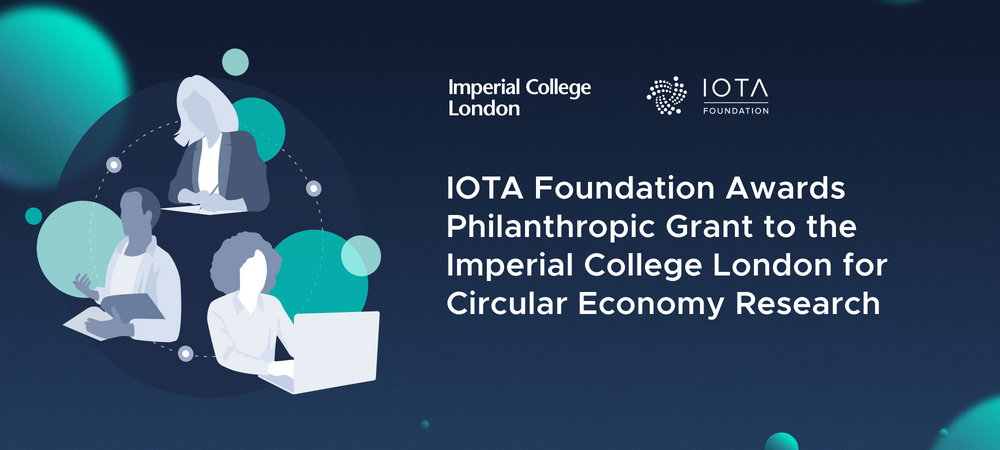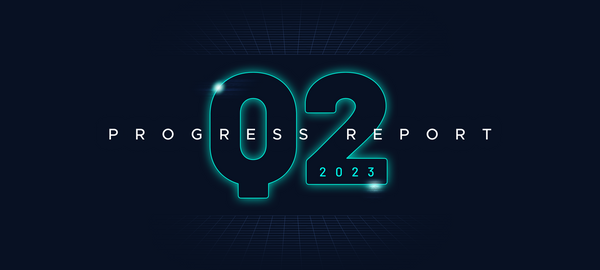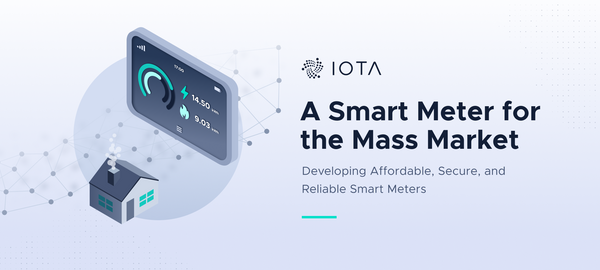IOTA Foundation Awards Philanthropic Grant to the Imperial College London for Circular Economy Research
BERLIN. February 3, 2022 – The IOTA Foundation, the not-for-profit organization driving the development of open-source distributed ledger technologies (DLT), announces a £1 million philanthropic grant to Imperial College to explore how DLT can help promote the circular economy. This grant will fund an initiative to combine research expertise from across the College to create the I3-LAB (Imperial-IOTA-Infrastructures Lab) within the Dyson School of Design Engineering.
A number of researchers will be involved in the I3-LAB, including Robert Shorten, Professor of Cyber-Physical Systems and Deputy Director of the Dyson School, who specializes in smart mobility, smart cities, the sharing economy, and distributed ledger technology. The grant will also support doctoral studentships and postdoctoral fellowships for researchers interested in topics related to circular business models, tokenization, and traceability. A series of targeted research projects will bring together these researchers with entrepreneurs and local authorities to investigate how DLT can be used to address a range of global economic and environmental challenges.
The climate crisis is one of the most pressing issues facing humanity. The IOTA Foundation has chosen to directly fund and empower researchers at ICL to design sophisticated and implementable solutions for slashing carbon emissions, reducing waste, and more. Researchers in the Foundation-funded I3-LAB will develop new applications for distributed ledger technology to enable a circular economy.
The concept of the circular economy has emerged as an alternative to current linear economic models. This approach attempts to decouple resource consumption from economic growth, by reducing waste and increasing the use of recycled materials. This involves the development of new materials or new business models, which move from selling manufactured products to selling a service or solution. Distributed ledger technology could provide a platform to support these new “servitized” businesses and help enable the circular economy.
A ledger is simply a database for recording transactions and other information. Unlike conventional databases where information is held by a central administrator, a distributed ledger database is hosted across multiple devices on a peer-to-peer network. The distributed ledger keeps track of these transactions without the need for a central authority to guarantee the trustworthiness of transactions.
“We are incredibly grateful to the IOTA Foundation for their support. Innovation in sustainable growth is one of the key research themes for the Dyson School and this grant will bring new impetus to research on the technological drivers of the circular economy,” said Professor Peter Cheung, Head of the Dyson School of Design Engineering. “By connecting our research expertise with entrepreneurs and statutory partners, the I3-LAB can lead the UK in piloting real-world applications for this technology.”
Follow us on our official channels and get the latest news:
IOTA: Discord | Twitter | LinkedIn | Instagram | YouTube




